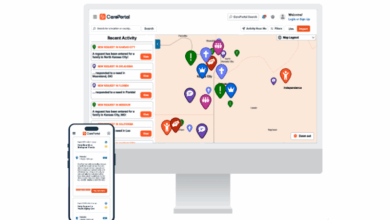New study confirms effectiveness of faith-based recovery programs
More than 130,000 congregations nationwide offer ministries such as Celebrate Recovery to help substance abusers. These faith-based programs are highly effective in turning lives around, according to a study published in the Journal of Religion and Health.
“Religious beliefs, practices and ministries not only provide succor and solace to those in need,” says Faith Counts, the non-profit organization that created the study. “They provide tangible, valuable resources that can help prevent and address substance abuse.”
Having a tie to a specific religion or faith helps addicts stay in recovery longer and keep them away from relapse, the study revealed. Those with faith connections also are more likely to stay away from addiction in the first place.
READ: Faith-based series now streaming
“While in the latest Gallup survey only 46 percent of Americans think that religion can answer today’s problems, the reality is that religion provides answers for one of today’s biggest problems — addiction.” said sociologist Brian Grim of Baylor University, who led the study.
Among the other key findings:
- An estimated 20 million Americans are affected by a substance use disorder
- There are approximately 158,000 alcohol- and drug-related deaths each year.
- Having religious ties lowers a person likelihood of struggling with addiction, but it’s no guarantee of sobriety.
- A majority of addiction treatment programs in the United States include “a spirituality based“ element.
- Seventy-three percent of these programs, including Alcoholics Anonymous, include references and practices regarding a higher power.
- More than 80 percent of studies demonstrate that faith helps reduce the risk of substance abuse.
- Up to 82 percent of clients who experience a spiritual awakening during substance abuse treatment and recovery were completely abstinent at a one-year follow-up, compared to 55 percent of non-spiritually awakened clients.
- Younger religious teenagers are three times less likely to use illegal substances than non-religious teenagers.
– Alan Goforth | Metro Voice






